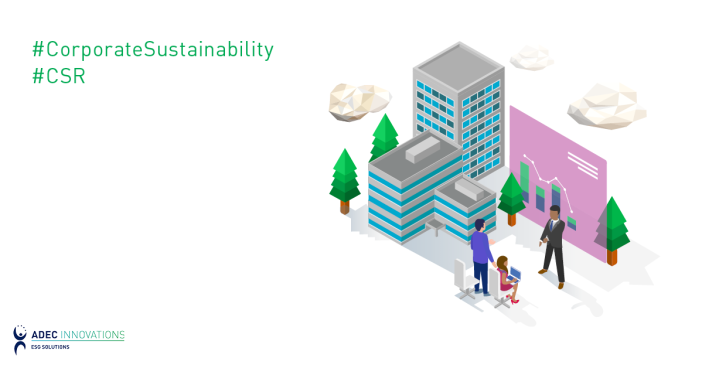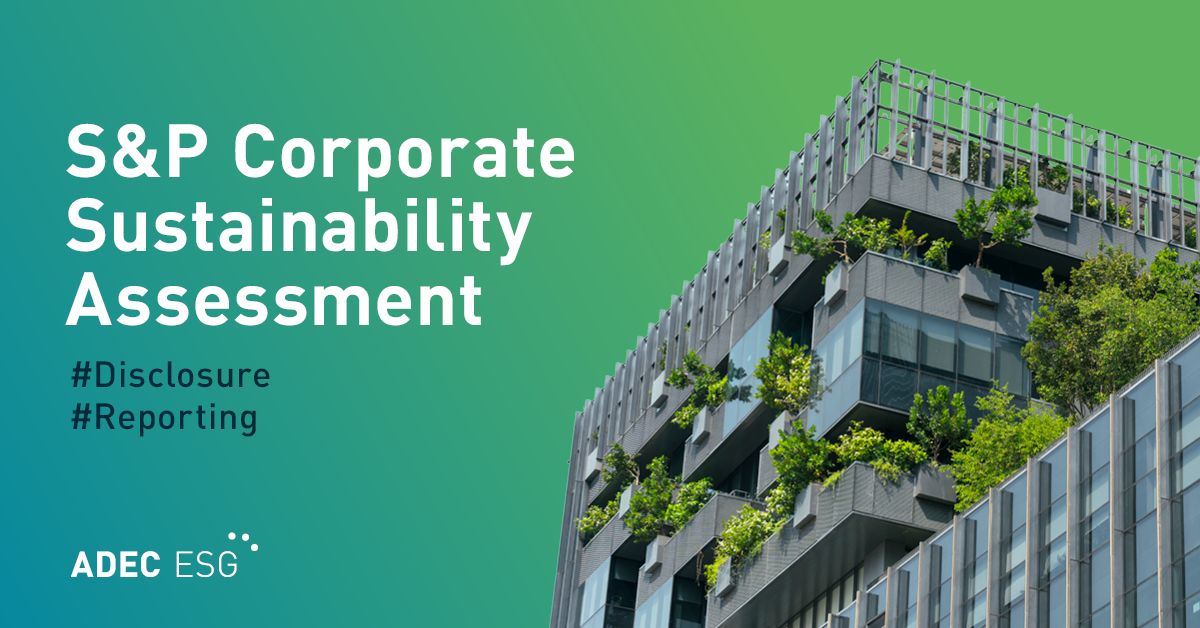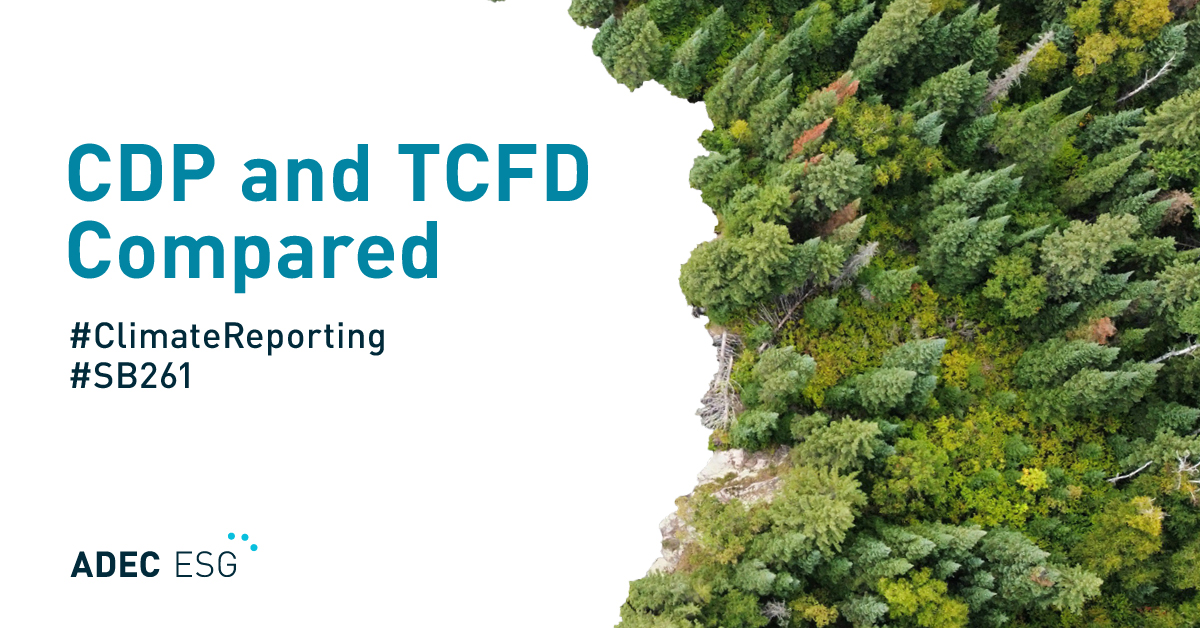In fact, you may have seen a variety of names out there: sustainability reports, impact reports, corporate governance reports, and so on—all stemming from this singular purpose.
CSR reports have many functions, including:
- Communicating an organization’s overall environmental, social, and governance (ESG) strategy, goals, and vision;
- Disclosing targets, metrics, and initiatives;
- Demonstrating alignment to ESG indices and frameworks; and
- Benchmarking against peers.
Given their typically vast publicity, CSR reports can often appear to be written for an external-only audience, a manifestation of the organization’s vision and progress for the eyes of investors, shareholders, and the public at large. But a CSR report can also be an incredibly useful tool to inspire every member within your organization to join you on your sustainability journey. How can the process of putting together a CSR report be a catalyst for change in your organization?
Effective CSR reports tell a story
Writing and publishing a CSR report requires you to take a closer look at your organization’s ESG performance and understand how it fits into your ongoing sustainability story. The report itself is an opportunity to highlight your company’s past accomplishments, while also communicating the areas where you hope to improve in the future. Being honest with your audience about where you’re at in your sustainability journey helps to build trust and shows that you care about ESG issues.
What is your business’s main ethos, and how has it evolved? What are your overarching goals in the short-, medium-, and long-term? How might these be affected by future changes in the environment, society, and economy, and how are you responding? Answering these questions and configuring your organization’s sustainability story calls for the examination of your operations and planning through the lens of People, Planet, and Profit – or the triple-bottom-line.
Another key piece of the puzzle is your company’s data. To tell a genuine sustainability story in your CSR report, reliable data is needed to support your narrative. You, therefore, need to have the systems in place to facilitate good data collection and management. Not only do long-term, consistent metrics and key performance indicators (KPIs) assist with your reporting, they inform your organization’s entire business strategy by demonstrating the real impacts of your operations. Data can connect the dots in your sustainability story, helping to track your progress and building a narrative that your stakeholders can relate to.
How CSRs drive sustainable action
An integrated perspective
While the process of putting together a CSR report takes time, it is an extremely worthwhile process that can engage your entire workforce—and your value chain—in your sustainability goals. Putting the pieces of your ESG puzzle together calls for an integrated approach involving all departments, different levels of your organization, and relevant stakeholders. Understanding the contribution of each of these to your overarching goals and ESG performance will help you decipher where you are excelling and where there might be gaps.
In-depth analysis
Maybe your pathway to net-zero under the Science Based Targets initiative is robust, but your company’s Code of Conduct hasn’t been updated in a few years. Perhaps your C-suite officers’ compensation takes ESG performance metrics into consideration, but you haven’t assessed the potential impacts of your operations on biodiversity. Engaging in the CSR reporting process encourages this level of analysis so that your business can directly identify areas for improvement. It also gives your team the opportunity to view your organization from different angles, allowing you to see the bigger picture.
Benchmarks and guidance
In a time when ESG factors are becoming increasingly significant to organizations across all sectors and regions, CSR reporting has proven an essential component of corporate sustainability. Fortunately, there are a wide variety of standards, frameworks, and indices organizations can use to guide their reporting. Some of the most common include the Taskforce on Climate-related Financial Disclosures (TCFD), the Global Reporting Initiative (GRI), and the Sustainability Accounting Standards Board (SASB). As well as providing foundational guidance on key concepts to ESG such as materiality, risks and opportunities, and management approaches, these frameworks help break down the requirements for best practice under a variety of ESG topics. The range of tools available means you can tailor them to your organization’s needs and preferences, while also exploring new topics you may not have considered before. Finally, many of these reporting tools allow you to benchmark your performance against your peers—both in similar and different industries—which provides both a challenge and an opportunity to learn more about where you stand.
Leading companies embrace reporting and transparency
As sustainable development becomes a key priority for economies worldwide, an organizations’ ESG performance will be increasingly scrutinized, and disclosure and reporting will continue to play a fundamental role. Investors, customers, and the wider community expect companies to be leaders in this space by being transparent about how their operations impact climate-related issues, environmental concerns, and the communities they serve.
CSR reporting can be leveraged as an opportunity to publicize commitments and demonstrate progress against targets. Consistent reporting—and a heightened demand for that reporting–also drives positive action in the corporate world. A CSR report serves as both a report card and a blueprint for the future, openly laying out your organization’s detailed plans for a long-term, sustainable, and successful path ahead. All organizations can benefit from CSR reporting, as it encourages cross-departmental collaboration, big-picture thinking, and in-depth analysis. If your company isn’t yet reporting, now is the perfect time to get on board and kick-off your sustainability journey.
ADEC ESG Solutions offers tailored solutions for CSR and sustainability report planning and design. Our experienced team works side-by-side with you to capture the essence of your company, from your people and culture to your approach to ESG and plans for the future. Read more about our clients and their successes.




